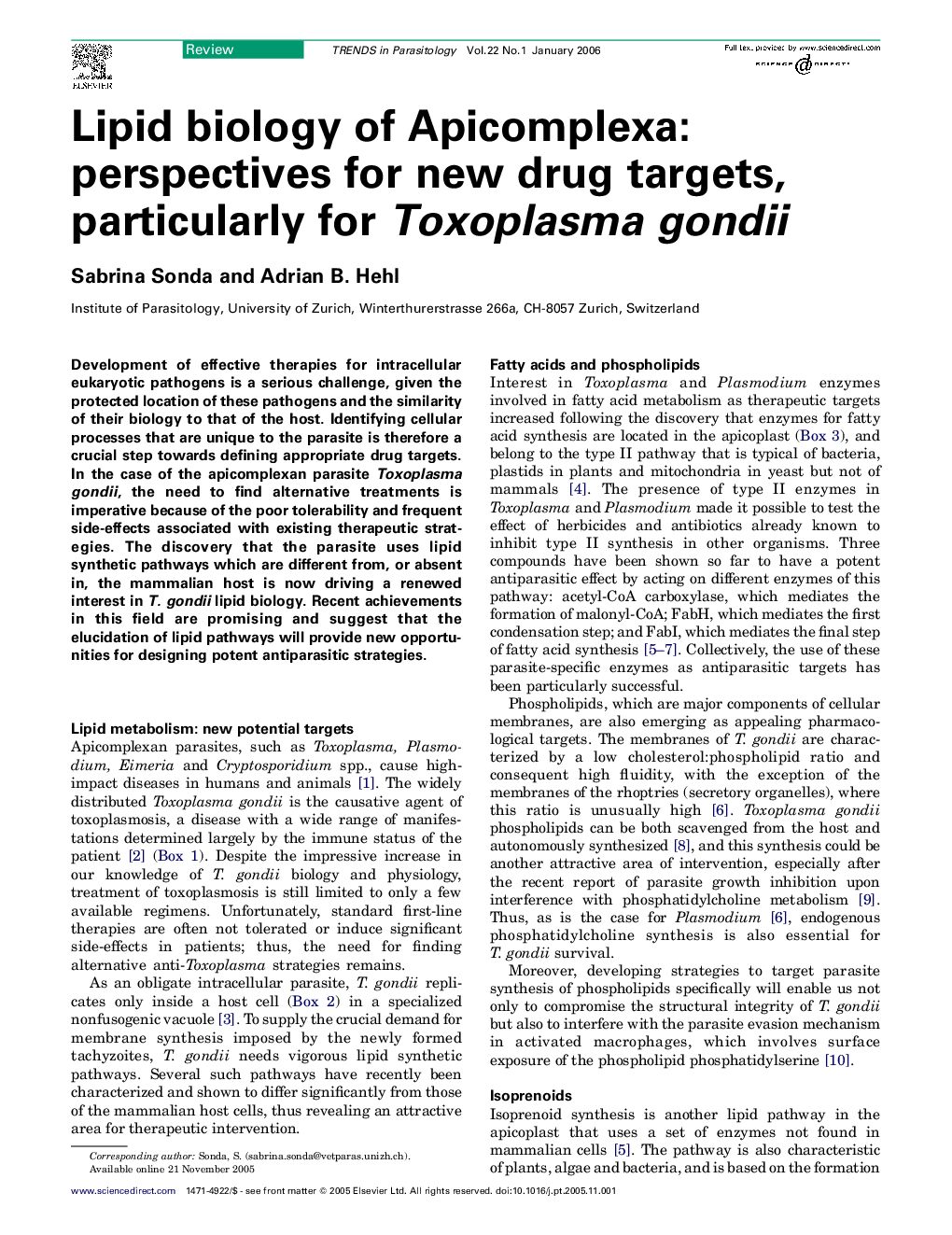| Article ID | Journal | Published Year | Pages | File Type |
|---|---|---|---|---|
| 3423913 | Trends in Parasitology | 2006 | 7 Pages |
Development of effective therapies for intracellular eukaryotic pathogens is a serious challenge, given the protected location of these pathogens and the similarity of their biology to that of the host. Identifying cellular processes that are unique to the parasite is therefore a crucial step towards defining appropriate drug targets. In the case of the apicomplexan parasite Toxoplasma gondii, the need to find alternative treatments is imperative because of the poor tolerability and frequent side-effects associated with existing therapeutic strategies. The discovery that the parasite uses lipid synthetic pathways which are different from, or absent in, the mammalian host is now driving a renewed interest in T. gondii lipid biology. Recent achievements in this field are promising and suggest that the elucidation of lipid pathways will provide new opportunities for designing potent antiparasitic strategies.
